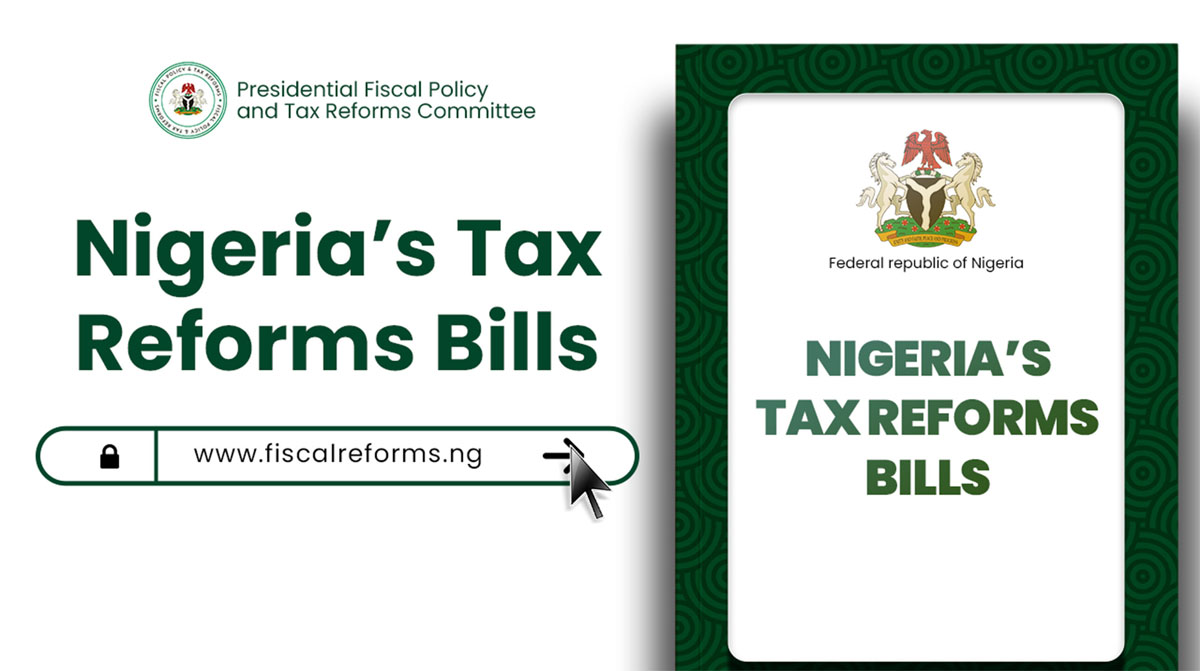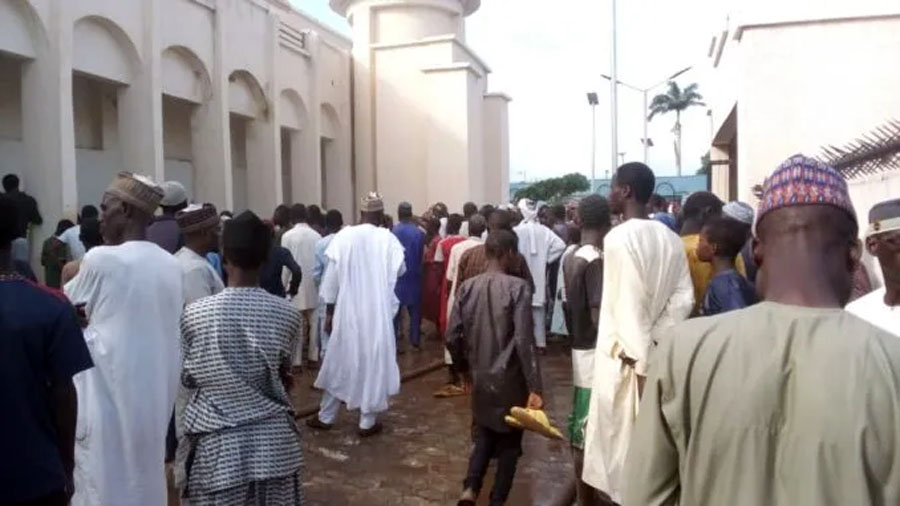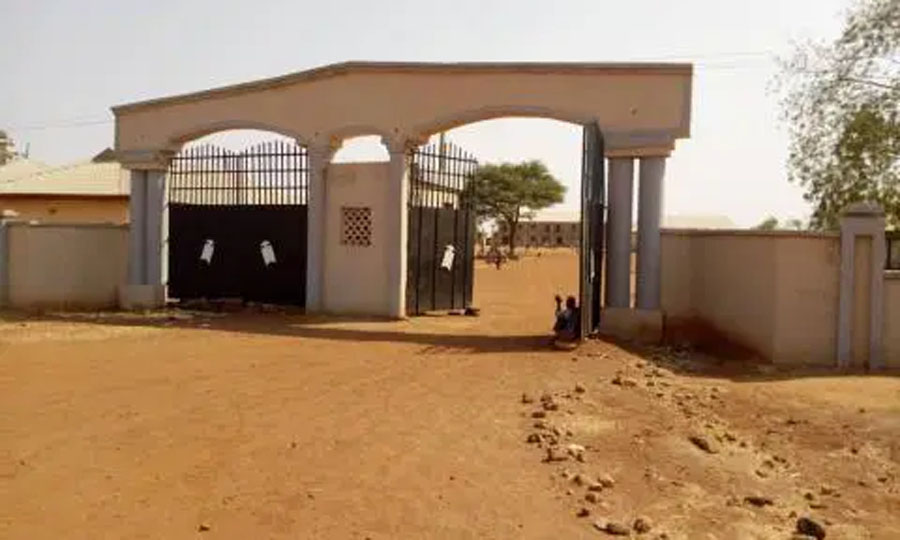metro
EXPLAINED: Proposed tax bills, what they would mean for Nigerians

EXPLAINED: Proposed tax bills, what they would mean for Nigerians
In August 2023, President Bola Ahmed Tinubu inaugurated the Presidential Committee on Fiscal Policy and Tax Reforms in Abuja. As nominally suggested, the committee has been working on reforming how taxes are administered, charged and remitted in Nigeria.
This committee’s activities have culminated in the proposal of the Tax Reform Bills which have caused a stir within policy circles and public debates in Nigeria. The bills include the Nigeria Tax Bill, Nigeria Tax Administration Bill, Nigeria Revenue Service (Establishment) Bill, and Joint Revenue Board (Establishment) Bill.
In the following paragraphs, FIJ simplifies the key aspects of the bills that have become major talking points.
VAT REVENUE SHARING
The topic of Value Added Tax (VAT) in the proposed Tax Reform Bills is a major talking point. VAT is an extra fee paid whenever one buys an item, a small slice added to the price that goes to the government to fund public services.
In Section 40 of the current VAT law in Nigeria, the government takes everything collected and splits it into three big pots. If N1,000,000 is collected in a year, N150,000 goes straight to the Federal Government (15%) and N350,000 (35%) is shared among the 774 local governments. The remaining N500,000 (50%) is shared among the states.
But here is where it gets interesting. The N500,000 is not split among states randomly. Half of it — N250,000 — is shared equally among all 36 states. So, every state gets about N6,944 regardless of how economically viable or large they are.
N150,000 (30%) is shared with the states based on their population. The states with larger populations get a larger cut of this N150,000. The last N100,000 goes to states based on derivation, a fancy word that means “Who brought in the money?” States that generate more VAT get a bigger portion of the amount.
READ ALSO:
- 12 feared dead in Zamfara community bomb explosion
- BREAKING: Senate forms special committee to address tax reform bill concerns
- Manchester United ‘scrap plans to wear LGBT rainbow jacket after devout Muslim player Noussair Mazraoui refused to wear it’
In the proposed tax reform bill, however, FG gets N100,000 (10%) and states have N550,000 (55%) to share. Most importantly, the derivation pot in the proposed reform is bigger. N330,000 (60%) out of the N550,000 will be shared with the 36 states based on how much VAT they generate.
On the more individual level, the current tax system only shares a 7.5% VAT on the goods and services Nigerians use. In the proposed bill, VAT charged on goods and services will go up from 7.5% to 10% first and then progressively to 15% by 2030.
In short, Nigerians will pay more VAT, and it will increase as the years go by.
However, core services such as rent, (public) transportation, health, food and education are exempted from VAT.
PERSONAL INCOME TAX CHANGES
Under the current tax system in Nigeria, people earning less than N300,000 annually don’t pay any tax. Those earning exactly N300,000 are taxed at 7% of their earnings, which amounts to N21,000. For individuals who earn between N300,000 and N600,000, the first N300,000 is taxed at 7% (N21,000), while the next N300,000 is taxed at 11% (N33,000), bringing the total tax to N54,000.
For incomes between N600,000 and N1.1 million, the first N600,000 is taxed as explained (N54,000), and the next N500,000 is taxed at 15%, adding another N75,000. This means you’ll pay a total of N129,000.
Those earning between N1.1 million and N2.7 million pay N129,000 on the first N1.1 million and 21% (N336,000) on the next N1.6 million, which brings their total tax to N465,000. For the people who earn more than N3.2 million, the first N3.2 million is taxed at N465,000, and anything above that is taxed at 24%.
Under the proposed reforms, the tax brackets change significantly. People earning up to N800,000 annually won’t pay any tax at all. For those earning between N800,000 and N3 million, the first N800,000 remains tax-free, while the next N2.2 million is taxed at 15%, amounting to N330,000.
For incomes between N3 million and N12 million, the first N3 million is taxed at N330,000, and the next N9 million is taxed at 18%, which adds N1,620,000, making the total tax N1,950,000.
READ ALSO:
- Lagos govt shuts supermarket accused of selling expired products
- Queen Dami to Portable: I’m only with you for money, will leave if you take new wife [VIDEO]
- Hookups lead to ritual killings, missing girls in Nigeria – Police
For those who earn between N12 million and N25 million, the first N12 million is taxed at N1,950,000, and the next N13 million is taxed at 21%, adding N2,730,000 and bringing the total tax to N4,680,000.
For those earning between N25 million and N50 million, the first N25 million is taxed at N4,680,000, and the next N25 million is taxed at 23%, adding N5,750,000 and bringing the total to N10,430,000. Finally, anyone earning above N50 million pays N10,430,000 on the first N50 million and 25% on anything above that.
Essentially, anyone earning below a million naira a year would not pay taxes under this structure. Also, those who earn a higher income will pay more.
CORPORATE INCOME TAXES CHANGES IN THE BILL
Under the current tax system, companies in Nigeria pay different rates of Corporate Income Tax (CIT) based on their size. Small companies with a total revenue of N25 million or less don’t pay any taxes.
Medium companies, earning between N25 million and N100 million, pay 20% (between N5 million and N20 million). Large companies, making over N100 million, pay the highest rate of 30%. For example, if a company makes N200 million in profits, it owes N60 million in taxes under the current rules.
The proposed reforms simplify this system and reduce rates for many companies. Small companies still won’t pay any taxes, but medium and large companies will pay the same rate.
In 2025, the rate will be 27.5% for both medium companies and larger ones. This will drop to 25% from 2026 onward. That same company making N200 million would pay N55 million in 2025 and N50 million in 2026.
READ ALSO:
- Court orders remand of Farotimi, Atiku says detention to intimidate citizens
- N80bn fraud: Court orders ex-AMCON MD Ahmed Kuru’s arrest
- FCT police impound 296 vehicles with tinted glass, defaced number plates
There’s also a new rule in the proposal to make sure big companies don’t get away with paying too little tax. If a company’s effective tax rate (what it actually pays after deductions) is less than 15%, it will have to pay extra to meet that minimum.
For instance, if such a company earns N20 billion and calculates its taxes at 12%, it would owe N2.4 billion. Under the new rule, it must add N600 million to meet the 15% minimum, bringing its total tax to N3 billion.
SCRAPPING FIRS AND UNIFYING TAXATION
The Nigeria Revenue Service Bill, proposed by the Presidential Tax Reform Committee, proposes replacing the Federal Inland Revenue Service (FIRS) with a new body called the Nigeria Revenue Service (NRS). In simple terms, the NRS will take over from FIRS but with more responsibilities.
One major change is the plan to centralise tax collection. Currently, some taxes are paid to state and local government agencies, but the NRS will handle all tax collection. It will also assist states and local governments in collecting their taxes and ensuring the funds are properly sent to them.
The bill also aims to simplify Nigeria’s complex tax laws. At the moment, taxes are governed by multiple acts, such as the Company Income Tax Act, VAT Act, and Petroleum Profits Tax Act. The proposed law will merge these into a single act, making taxes easier to understand and manage.
Businesses will no longer have to deal with different agencies for different taxes. Instead, the NRS will handle everything in one place, reducing any existing confusion for taxpayers.
The reforms also promise to introduce new tools to make the tax system fairer and more efficient. A Tax Appeal Tribunal will be set up to resolve disputes quickly and without the need for regular courts.
Meanwhile, a Tax Ombudsman will step in when taxpayers face issues like delays, errors or poor service. This office will investigate complaints and recommend solutions to ensure everyone is treated fairly.
READ ALSO:
- How mother of late Dowen College student, Sylvester Oromoni, died, family, others mourn
- Gunmen kill pastor going for burial, kidnap 3 others in Kogi
- Sheikh Gumi supports Tinubu’s tax reform bills, gives reasons
If the bill becomes law, the Joint Revenue Board will also be established to coordinate tax matters across all levels of government. Altogether, these changes promise a simpler, more streamlined tax system for businesses and individuals alike.
WHAT ARE DEVELOPMENT LEVIES AND WHAT HAPPENS TO THEM
The remittance of development levies is one of the major talking points in the Tax reform bill.
Critics like Borno State Governor Babagana Zulum have called the Federal Government out, for ‘planning to merge or scrap’ agencies like the National Information Technology Development Agency (NITDA), the National Agency for Science and Engineering Infrastructure (NASENI), and the Tertiary Education Trust Fund (TET Fund).
Under the current system, Nigerian companies are mandated to pay certain levies to these agencies. Legislations like the NITDA Act, the Finance Act and the TETFUND Act, enforce these levies.
In that system, firms 3% of the assessable profit for each year of assessment to fund education in Nigeria through TEFUND. Companies earning N100 million or more annually also contribute 1% of their pre-tax profits to the National Information Technology Development Fund to boost IT innovation.
Additionally, some industries, such as banking and telecommunications, would pay a newer 0.25% levy to fund science and engineering projects through NASENI.
The proposed bill simplifies this structure with just one development levy. Medium and large companies will contribute, but small businesses and foreign companies are exempt. From 2025 to 2026, the companies pay 4% of profits. This covers remittances to education, science and research, and innovation funds.
The levy drops to 3% between 2027 and 2029, and stays at 2% from 2030 onward. The collected funds will be split among key agencies if the new bill becomes law.
In the first year post-signing (2025-2026), The TET Fund gets the lion’s share — 50%. This share of the development levy will increase to nearly 67% by 2027. But after 2029, the TETFUND will phase out.
A new Student Education Loan Fund starts smaller at 25% in 2025–2026, grows to 33% in 2027, and takes over the entire levy by 2030. After 2026, funding for tech, innovation and engineering will stop.
EXPLAINED: Proposed tax bills, what they would mean for Nigerians
FIJ
metro
Sokoto Officials Deny Reported Mosque Attack as Bandits Kill Five in Gatawa Raid

Sokoto Officials Deny Reported Mosque Attack as Bandits Kill Five in Gatawa Raid
The Chairman of Sabon Birni Local Government Area in Sokoto State, Ayuba Hashimu, has dismissed viral reports alleging that bandits attacked a mosque in the council area, killing an Imam and several worshippers.
Some online platforms had circulated claims that armed bandits stormed a mosque in Sabon Birni, murdered the Imam and congregants, and abducted others.
However, Hashimu, speaking by telephone, described the reports as entirely false.
“I don’t know any mosque that was attacked, not to talk of killing of an Imam and worshippers. The story is false,” he stated.
A member of the state legislature representing the area, Hon. Aminu Boza, also debunked the claims, insisting that no mosque attack occurred on Saturday.
READ ALSO:
- Benin govt says coup attempt foiled as soldiers seize state TV, gunfire rocks Cotonou
- BREAKING: Soldiers Announce Coup in Benin Republic, Declare President Patrice Talon Removed
- Nigerian Army Suspends Retirements for Officers Amid Nationwide Security Emergency
“I don’t know how they got their story, but it is not true. No mosque was attacked by bandits,” he said.
While officials denied the alleged mosque incident, a separate early morning assault on Gatawa town within the same LGA resulted in five deaths and left one person critically injured.
A resident, who spoke on condition of anonymity, told Daily Trust that six people — including two married women, two teenage girls and two young boys — were abducted by attackers suspected to be bandits.
“The bandits invaded our community around 1:30 a.m. and started shooting sporadically. Our vigilantes engaged them, but four of them paid the supreme price on the spot. Two others sustained gunshot injuries and were taken to the hospital, but one later died,” the resident said.
He added that the attackers also stole livestock as they fled.
“We heard them exchanging fire with security agents, but none of the abducted persons was rescued,” he recounted.
Sokoto Officials Deny Reported Mosque Attack as Bandits Kill Five in Gatawa Raid
metro
FG Begins Formal Recovery of 157 Almajiri Schools for Nationwide Rehabilitation

FG Begins Formal Recovery of 157 Almajiri Schools for Nationwide Rehabilitation
The Federal Government has commenced the official recovery of 157 model Almajiri schools built during the administration of former President Goodluck Jonathan, in a renewed push to overhaul Almajiri education across the country.
The move was confirmed by Nura Muhammad, spokesperson for the National Commission for Almajiri and Out-of-School Children Education (NCAOOSCE), during an interview in Abuja on Sunday. He described the recovery process as a crucial step toward fully revamping and institutionalising Almajiri education.
Muhammad explained that the effort follows the establishment of a legally backed national body now responsible for all Almajiri-related programmes — a structure he said was missing during earlier reform attempts.
READ ALSO:
- Benin govt says coup attempt foiled as soldiers seize state TV, gunfire rocks Cotonou
- BREAKING: Soldiers Announce Coup in Benin Republic, Declare President Patrice Talon Removed
- Nigerian Army Suspends Retirements for Officers Amid Nationwide Security Emergency
While commending former President Jonathan for constructing the schools, which he described as “a noble and well-intentioned stride toward modernising the system,” Muhammad noted that the previous initiative struggled due to weak policy implementation, including inadequate engagement with Alarammas, the traditional Qur’anic teachers who play a central role in the Almajiri system.
He added that the lack of a strong institutional framework — with the project operating only as an initiative under the Federal Ministry of Education — contributed to its challenges.
According to him, the Commission is now strengthened by law and guided by the newly adopted National Policy on Almajiri Education, positioning it to deliver sustainable reforms.
Muhammad expressed confidence that harmful practices linked to the Almajiri system would be addressed, emphasising that all recovered schools would soon be fully under the Commission’s control and rehabilitated to serve their original purpose.
FG Begins Formal Recovery of 157 Almajiri Schools for Nationwide Rehabilitation
metro
Delta State Police Arrest Suspects in Killing of Retired Justice Ifeoma Okogwu

Delta State Police Arrest Suspects in Killing of Retired Justice Ifeoma Okogwu
The Delta State Police Command has made a significant breakthrough in the investigation into the murder of retired Justice Ifeoma Okogwu in Anambra State, arresting key suspects linked to the case.
Spokesperson SP Bright Edafe disclosed on Sunday that operatives of the Homicide Section of the State Criminal Investigation Department (CID), acting on credible intelligence, apprehended 25-year-old security guard Godwin Mngumi on 6 December 2025. Mngumi allegedly murdered the retired judge, and authorities also recovered the deceased’s mobile phone from him.
READ ALSO:
- Nigerian Army Suspends Retirements for Officers Amid Nationwide Security Emergency
- Dangote urges wealthy Nigerians to invest in industries, not luxury cars, private jets
- Mohamed Salah Slams Liverpool Boss Arne Slot, Hints at Anfield Exit Ahead of AFCON Departure
According to Edafe, Mngumi confessed to inviting a friend, Nnaji Obalum, and another accomplice — who remains at large — to the residence where the crime was committed. Obalum has since been arrested, while a manhunt continues for the third suspect.
The arrests mark a major step forward in the effort to bring all perpetrators of the high-profile murder to justice.
Delta State Police Arrest Suspects in Killing of Retired Justice Ifeoma Okogwu
-

 metro3 days ago
metro3 days agoSenate Launches Emergency Probe into Widespread Lead Poisoning in Ogijo, Lagos/Ogun
-

 Auto3 days ago
Auto3 days agoCourt of Appeal Affirms Ruling Barring VIO from Seizing Vehicles or Fining Motorists
-

 Sports1 day ago
Sports1 day ago2026 FIFA World Cup Draw: England Draw Croatia as Brazil Face Morocco in Tournament Opener
-

 metro3 days ago
metro3 days agoFG secures release of three Nigerians detained in Saudi Arabia
-

 News1 day ago
News1 day agoAkpabio sues Natasha for ₦200bn over sexual harassment allegations
-

 metro3 days ago
metro3 days agoNed Nwoko vows legal action against rising online harassment, criminal defamation
-

 metro2 days ago
metro2 days agoTinubu Govt Eliminates More Terrorists Than Previous Administrations — Fani-Kayode
-

 metro1 day ago
metro1 day agoFour Teenagers Killed in Banki Explosion as Borno Police Probe Deadly IED Blast













